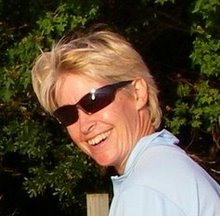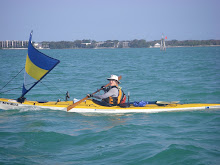
Writing about mum yesterday reminded me of one of the stories I phoned her about, the “you'll never guess what just happened!” calls. I was living in NYC at the time, transferred from London for two years to establish a development and alumni office for
University College London, working from my apartment.
Most nights I ate sushi two doors down, on 3rd Ave, just below 80th. Apparently the place closed down a week or so after I left – pals said that my two years of eating there had kept it afloat. Most nights I ate at the sushi bar, as the lead chef, a Japanese waiting for a Green Card, had taken a bit of a shine to me and slipped me new morsels to experiment on. (If anyone can read Japanese, I still haven’t been able to translate the message he wrote on a baseball he gave me one evening.)
Anyway, the bar soon filled up with a young group of lads, whose parents and elders moved into the back room to eat in more quiet. They were from Uruguay, and dead mad about rugby. Ha, and here was the Kiwi also dead mad on rugby. We immediately set about saving the world. The boys were college students (what Americans call high school and us college) and desperately wanted to put together a tour of NZ to play school boy rugby. Did I know anyone who could help? Of course, I said – NZ’s a small place. I wrote down on a paper napkin the names of the principals of the schools I knew – Tauranga Boys’ College where my mum had taught for 16 years and was senior mistress; Hamilton Boys’ High where an old colleague of mum’s was now principal and was once an All Black; Selwyn College, in Auckland, where an uncle had taught maths; and Auckland Boys’ Grammar, where the ex-husband had gone. They were thrilled and tucked the napkin away.
“Would you like to meet my dad?”, the young man asked. “He’s also a rugby player. In fact, he was the young medical student, Roberto Canessa, who was on the plane that crashed in the Andes in 1972.” I gaped at Canessa junior. The story of the young rugby players who had survived for 72 days in the Andes had been one of the great stories of my childhood, and I had avidly read and re-read Piers Paul Read’s book,
Alive, when it was published in 1974. “I would love to meet him”, I replied. Canessa junior slipped off his bar school and soon returned with his dad. He was quite short in stature, about 5ft4, but trim and strong looking. He beamed as he shook my hand, delighted to meet a Kiwi. The feeling was mutual. Roberto talked a little about his experience trapped on the mountain, but became even more animated when he told me about his talks to local Uruguayan school children, telling them of their struggles and fortitude and comradeship, taking with him relics of their stay on the mountain. I felt honored to have met him.
A few hours later I returned two doors up 3rd Ave to my apartment, raced up to the eighth floor and rang mum in NZ, saying, “you’ll never guess what just happened!”
 Just when I'm getting back into the swing with the blog, I'm off first thing tomorrow - to Orlando. It's our annual meeting, with delegates flying in from mostly all around the US, but did find someone via a blog mention flying out from Moscow at 0530 this morning to join us. That's dedication.
Just when I'm getting back into the swing with the blog, I'm off first thing tomorrow - to Orlando. It's our annual meeting, with delegates flying in from mostly all around the US, but did find someone via a blog mention flying out from Moscow at 0530 this morning to join us. That's dedication.

















